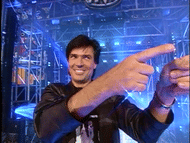The dawn of the new millennium meant different things to different people. For some, it was merely a new year, while for others, it was a new beginning. For professional wrestling fans, it was like any other year, but was anything but a ‘new beginning’. As 2000 folded and 2001 came along, the professional wrestling industry changed forever.
Before I explain the title of the article and the first few lines, we need to take a look back at the late 80s and early 90s, at a time when professional wrestling was reaching its peak. The industry was blossoming, with the fanbase of the business reaching an all time high, and with World Wrestling Federation exploring the ‘Sports Entertainment’ side of things, there was a boom in the industry. The revenues, gates and buy rates sky rocketed, and professional wrestling was one of the most followed ‘sports’ in the world.
WWE has no plans for these former AEW wrestlers? Here's why!
Being the biggest organization in the world, WWF monopolized the industry in the late 80s. Vince McMahon Jr. went back on his father’s word and nationalized the WWF, erasing most of the territories in the process. The other organizations that survived this hostile takeover were confined to their small territories.
With the fans having no other alternative except for the WWF, the fans clamored for a change as the 90s began. Hulk Hogan was no longer the flavor of the month, and neither was the product of WWF. And then, the fans’ prayers were answered with a phone call from the business tycoon and media mogul, Ted Turner to Vince McMahon Jr.
“I’m starting a wrestling company” was what Ted Turner said, to which Vince replied that he was in the entertainment business. As the fans witnessed the rise of World Championship Wrestling, the likes of Ric Flair and Sting brought eyes to the company.
In the first half of the 90s, WCW gained momentum, although they still couldn’t challenge WWF. Hulk Hogan jumped ships from the WWF to WCW, but still couldn’t blow his way past the global juggernaut. It was in the year 1996 that professional wrestling industry turned on its head, with Hogan joining the Outsiders, thus turning heel for the first time in decades.
The fans, who were bored of the “pasty” Hogan were suddenly tuning into WCW to watch the ‘once in a lifetime’ incident. The WWF, although still reigning supreme, was taken aback by the sudden rise of WCW’s product. What transpired from then can only be described as a miracle.
For the very first time, WWF was being challenged. WCW, with exceptional storylines and great booking started trading blows with the WWF. Before you knew it, WCW beat WWF in ratings.
For the next 84 straight weeks, WCW was the supreme leader in cable ratings. With Stinger, Bret Hart, Randy Savage, Flair and Hogan on board, it looked as if WCW would run WWF out of business. For the very first time in his life, Vince McMahon was pushed into the corner.
Eric Bischoff and WCW were dreaming of dethroning Vince McMahon completely, and make WCW the biggest global organization in the world. The fans, now dubbing this war as the Monday Night Wars, witnessed something that was never seen before, and will never likely be seen again in the industry, as WCW and WWF went all at it.
Fast forward to 2000, WCW was fast crumbling down. The powers ruined the company from inside, with the likes of Hogan, Nash and Russo completely destroying the organization for their own greed and money. The fans couldn’t believe their eyes, and the company they fell in love with declared that they were looking for potential buyers.
WCW, from the highest of highs, fell to the ground and was being consumed completely by the fire that was started by these money hungry leeches. With the fans giving up on the product, what was once the answer to professional wrestling was quickly meeting its demise.
In 2001, WCW met its inevitable end; professional wrestling industry witnessed something that can only be described as the demise of the business. Vince McMahon bought WCW, and made their stars into jobbers before releasing them. The fans, who grew up watching WCW and its product, for one last time saw the Stinger and Ric Flair wrestle on the last episode of Nitro.
I can still remember the emotional embrace between the two icons of the business. Two performers who personified WCW were shedding tears in the middle of a WCW ring for one last time. An organization which exemplified professional wrestling was no more, and once again, WWF was the sole survivor.
Many fans since then have clamored for another organization to do what WCW achieved for over a decade, but no other organization, present or future can replicate what WCW achieved. In 2001, professional wrestling died along with WCW, and the era of ‘Entertainment’ began. The new millennium wasn’t a happy one for everyone, as it was the beginning of the end of professional wrestling.
How WWE has messed up John Cena's last run - Check here!


